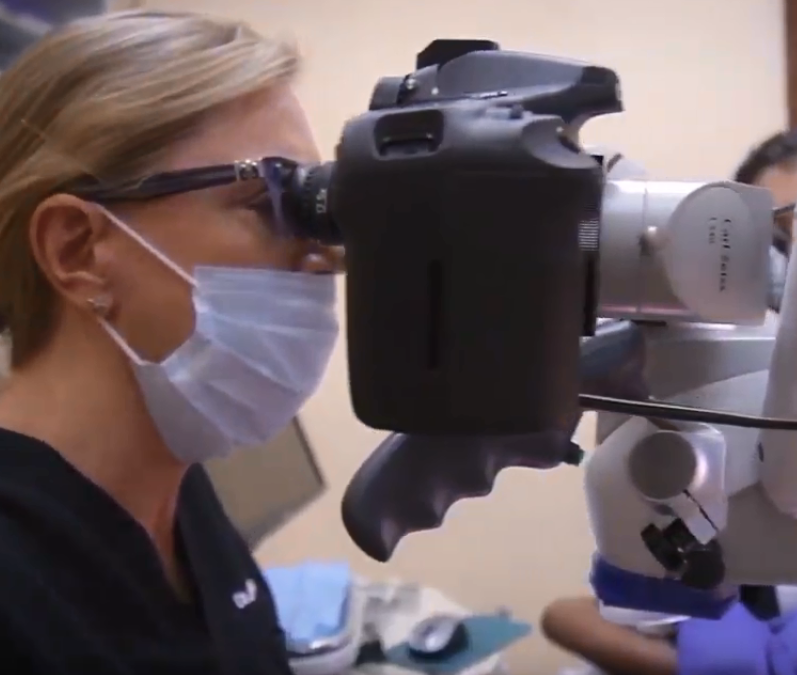
by Dr. Jacqueline S. Allen | Jun 25, 2019 | Blog, Dental Implants, Dentistry
As more people consider dental implants when natural teeth cannot be saved, some patients may wonder what level of discomfort to expect. This is a complex question, as some people need tooth extractions, sinus lifts, or bone grafts in conjunction with a dental implant. However, there are some general guidelines to how much pain is “normal” when you have a dental implant, and what kind of pain warrants a call to your dentist or endodontist.
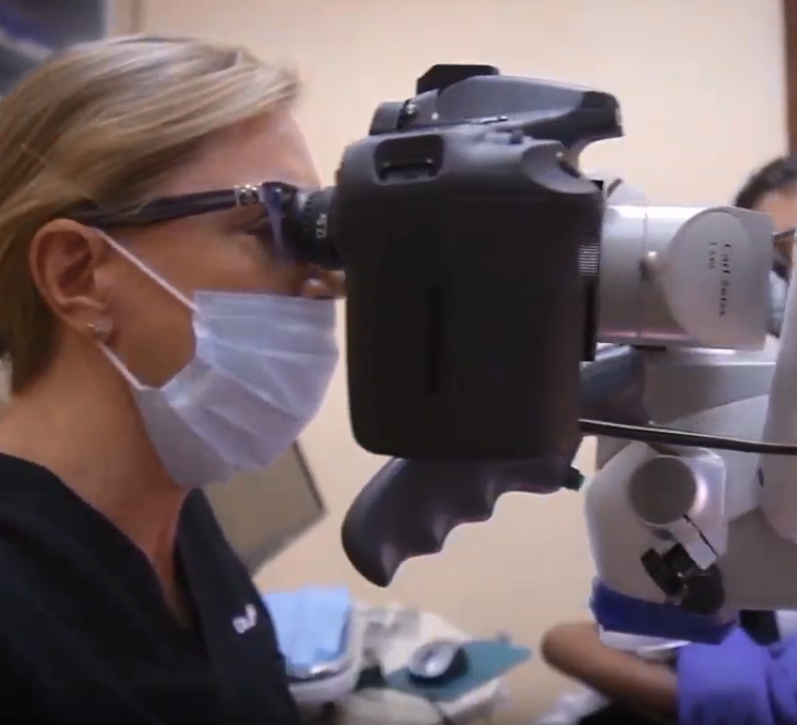
When You Might Experience Pain During The Dental Implant Process
- During the implant procedure itself: This is possible, but not common, because your dentist will use the best type of anesthesia for your circumstances. This can include heavy local anesthesia and/or some type of sedation.
- After getting a dental implant: Once the anesthesia wears off, it is normal to experience swelling for the first three to four days after your operation and some pain may remain for as long as 7-10 days.
- If you had teeth extracted, a bone graft, or a sinus lift with your dental implant: All of these procedures can result in additional discomfort.
- If you experience complications during the healing process: If your post-op swelling goes away and then returns accompanied by pain, this may indicate you have an infection. Call your implant surgeon or endodontist – they may ask you return to be examined or may write you a prescription for an antibiotic.
Things You Can Do To Reduce Post-Operative Pain
- Take pain relievers as prescribed. Your dental implant provider will likely send you home with a prescription for ibuprofen or another pain reliever.
- Reduce swelling and pain with cold packs. Apply a cold pack or even a bag of frozen peas to the area of your cheek over the implant site. Avoid skin irritation by wrapping the cold pack in a thin cotton washcloth.
- Bathe the gums covering your implant with warm salt water. Do not swish! Hold the water in your mouth near the implant site, then spit it out gently. Repeat several times in a row, every few hours, for the first one to three days after your surgery.
“Dental implants can be a safe, durable, permanent solution for improving your oral health,” says Dr. Jacqueline S. Allen, an endodontist practicing at the Phoenix Endodontic Group. “Our staff can provide you with a comprehensive overview of how we can work together to minimize your pain during and after the implant surgery.”
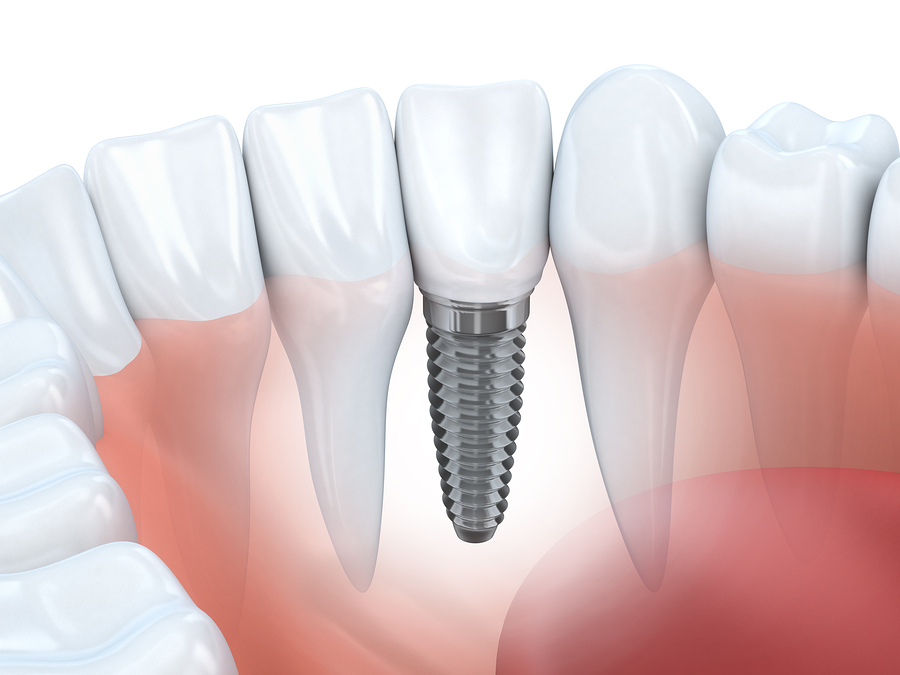
by Dr. Jacqueline S. Allen | Nov 28, 2018 | Blog, Dental Implants, Dentistry, Endodontist, Phoenix Endodontic Group
 Dental patients with teeth that are seriously compromised by illness, injury, or decay are usually aware that extraction by itself is rarely the best option. If you are experiencing serious tooth trouble, you may be wondering whether a root canal or a dental implant would be the better solution.
Dental patients with teeth that are seriously compromised by illness, injury, or decay are usually aware that extraction by itself is rarely the best option. If you are experiencing serious tooth trouble, you may be wondering whether a root canal or a dental implant would be the better solution.
At Phoenix Endodontic Group, our practice is dedicated to saving natural teeth through root canal treatments and related procedures. However, there are times when a tooth simply cannot be saved through endodontic treatment. When that is the case, our practice may recommend a dental implant for the patient.
Who Is A Good Candidate For A Dental Implant?
- A patient who has a lower level of dental anxiety or phobia. Tooth extraction and implant surgery are more complex procedures than root canal treatment. If anxiety issues do exist, they should be discussed during preparation for the implant. We can develop a care plan for patients experiencing dental anxiety.
- A patient with strong periodontal (gum) health. By the time the “root canal or dental implant” crossroads has been reached, many patients already are struggling with advanced gum disease, but the healthier the gums are, the greater the likelihood the procedure will go smoothly.
- A patient who has not experienced significant bone loss in the jaw. Bone grafts can be done to strengthen a jaw before it receives an implant, but this may result in an additional procedure.
- A patient who can commit to a lengthy implantation/recovery process. Traditional dental implants require several months to complete. The portion of the implant inserted into the jaw must be allowed to integrate with the bone before placement of an artificial tooth is possible.
“Dental implants and root canals both have high levels of success and patient satisfaction,” says Dr. Jacqueline S. Allen, an endodontist who practices with the Phoenix Endodontic Group. “Your dental team can determine which treatment route is better for your individual circumstances.”
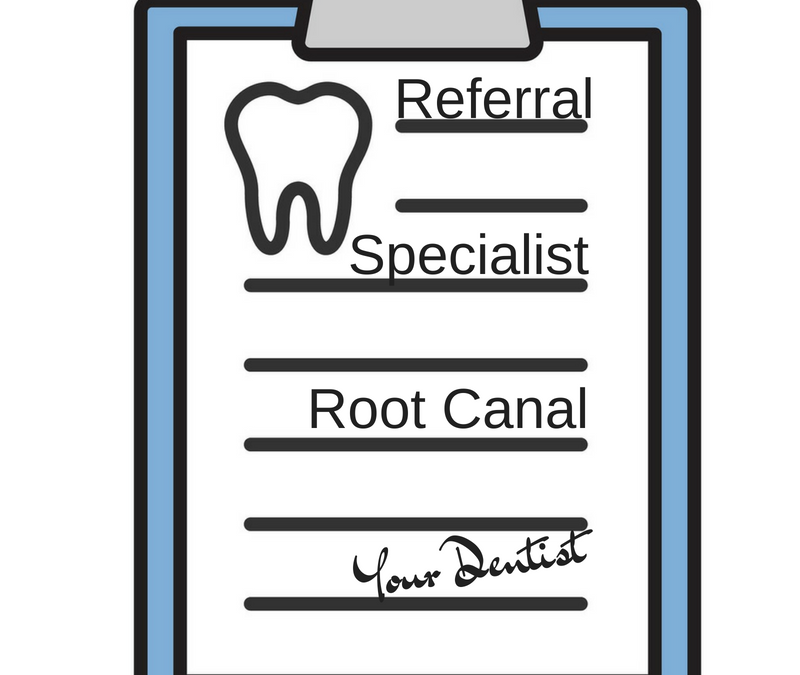
by Dr. Jacqueline S. Allen | Jun 25, 2018 | Blog, Dentistry, Endodontics, Endodontist, General Information, Root Canal
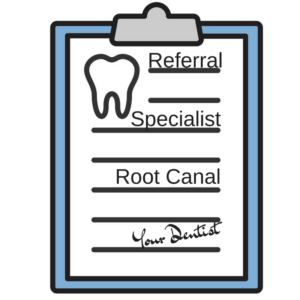 If your general dentist has recommended that you call an endodontic provider about having a root canal performed, you’re far from alone. The American Association of Endodontists reports that more than 15 million root canals are performed every year – that’s more than 41,000 root canals per DAY.
If your general dentist has recommended that you call an endodontic provider about having a root canal performed, you’re far from alone. The American Association of Endodontists reports that more than 15 million root canals are performed every year – that’s more than 41,000 root canals per DAY.
Why is this procedure done so often to treat an injured or infected natural tooth? There are several reasons why root canals have become a treatment of choice.
Why Is A Root Canal Being Recommended For Me?
- Your dentist or endodontist has determined your natural tooth can be saved. With more than three-quarters of all Americans indicating a preference for saving a tooth over replacing it with an implant, your provider will likely lean in the direction of seeing if salvaging the tooth is possible with a root canal treatment.
- Root canal success rates are comparable with those of dental implants. In both situations, the treatments are successful more than 90 percent of the time.
- Modern root canals are safe, effective and cause little discomfort. Many times, patients come to an endodontist with an infected tooth that has damaged tissues that are causing discomfort. A root canal actually alleviates this discomfort, rather than causing more. Most patients experience about as much discomfort during a root canal as they would getting a cavity filled.
- Nothing can replace the look or function of a natural tooth. Artificial restorations such as dental implants have their advantages, but retaining a natural tooth through a root canal can ensure the tooth stays in your mouth for a lifetime.
“Root canals are neither exotic nor risky,” says Dr. Jacqueline S. Allen, who practices with the Phoenix Endodontic Group. “Endodontists perform this health-enhancing procedure on a daily basis and can make your experience comfortable and stress-free.”
by Dr. Jacqueline S. Allen | Apr 17, 2018 | Blog, Dentistry, Endodontics, Endodontist, General Information, Phoenix Endodontic Group, Root Canal
Many of us love a good mystery novel or television show, but few people enjoy mysteries that revolve around our teeth. If you went to your general dentist to resolve a nagging dental issue, you may be wondering why he or she sent you to an endodontist for further examination and treatment.
Endodontists are dental specialists who focus on treating diseases of the dental pulp. They are experts in restoring infected or injured natural teeth to health. The procedures that they perform for patients also make them quite knowledgeable about reducing and eliminating dental pain.
If your dentist has referred you to an endodontist, here are some of the most common reasons he or she may have done so.
Top Reasons For Referral To An Endodontist
- Your dentist suspects that you need a root canal. If you have the symptoms of infected tooth pulp, your dentist will most likely want the endodontist to conduct an examination and potentially perform a root canal.
- Your dentist may want to have the endodontist examine a previous root canal. Root canal treatments, when followed by the addition of a dental crown on top, have success rates that exceed 90 percent. But root canals can fail, and when they do, an endodontist is the professional most experienced in performing a root canal retreatment.
- You may have a cracked tooth. Teeth cracks can let in bacterial infection that can damage the tooth’s pulp. In many cases, root canals performed by an endodontist are the only thing that can preserve a natural tooth that has suffered a crack.
- You may need an apicoectomy. If a previous root canal has failed, the damaged tooth may need an apicoectomy, which fills and seals the root tip of the tooth from the root end of the tooth (rather than from the crown end of the tooth, as in a typical root canal).
“Dentists and endodontists work together as a team to keep your natural teeth healthy and intact,” says Dr. Jacqueline S. Allen, who practices with the Phoenix Endodontic Group. “If you have any questions about your referral, let our office know and we will provide a detailed explanation of your condition and your options for treatment.”
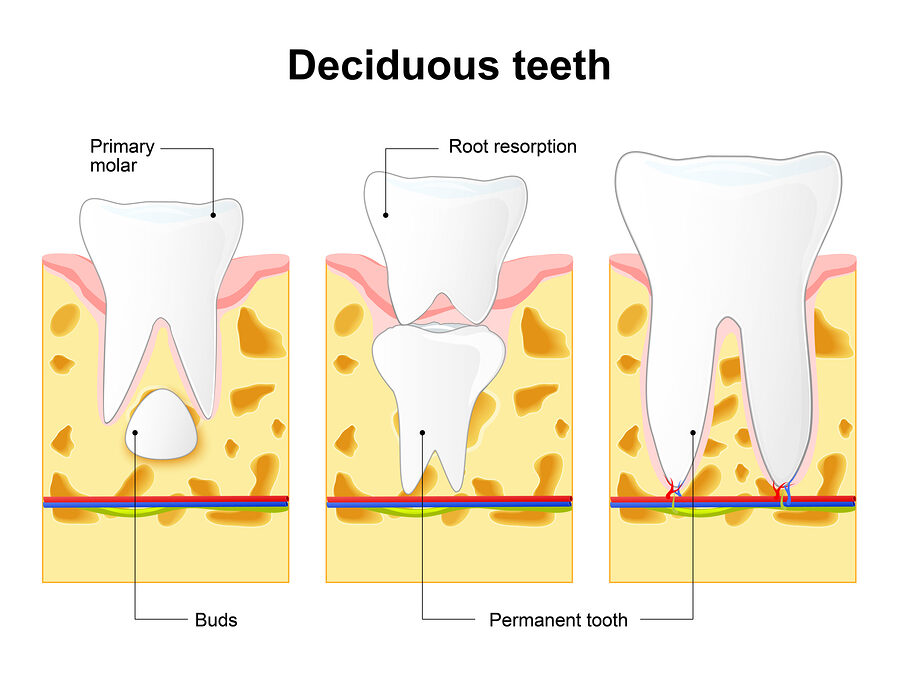
by Dr. Jacqueline S. Allen | Jul 10, 2017 | Blog, Dentistry, Endodontics, Endodontist
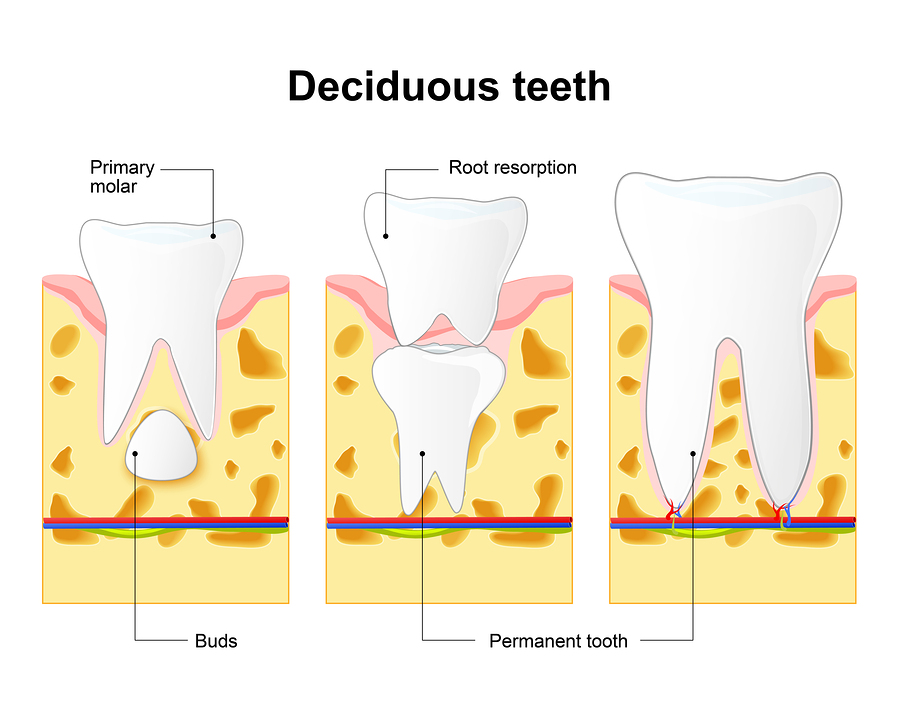 The human body is an amazing organism. It experiences a variety of physical phenomena throughout one’s lifespan in order to keep us on a proper developmental pathway. One phenomenon that is completely normal in childhood is root resorption in the primary teeth. Our “baby teeth” lose their roots, which is why they eventually fall out to make room for our adult teeth.
The human body is an amazing organism. It experiences a variety of physical phenomena throughout one’s lifespan in order to keep us on a proper developmental pathway. One phenomenon that is completely normal in childhood is root resorption in the primary teeth. Our “baby teeth” lose their roots, which is why they eventually fall out to make room for our adult teeth.
However, once we have all of our adult teeth, root resorption becomes an unexpected and abnormal process. In some cases of dental resorption a patient can experience pain, numbness, and discomfort, in addition to changes in the shape and size of the teeth; however, often the symptoms can be far more subtle.
Here’s a quick list of things to know about root resorption so that you and your Phoenix endodontist can ensure your natural teeth remain healthy and functional.
How to avoid root resorption problems
- Understand how root resorption can happen. Some causes of dental resorption include excessive orthodontic force being used on teeth, trauma to a tooth that damages the periodontal ligament, and conditions such as bruxism (grinding one’s teeth).
- Understand how root resorption is diagnosed. If root resorption is suspected, your Phoenix endodontist or another dental specialist can use radiographs, photos, x-rays, and diagnostic models to determine how far the resorption has progressed and how severely your natural tooth has been impacted.
- Understand how root resorption is treated. If the resorption activity is primarily occurring on the exterior of the tooth, single-tooth orthodontic or periodontal treatments may help. However, more advanced cases that involve the tooth pulp often require your Phoenix endodontist to perform a root canal to try to save the natural tooth.
“Root resorption allows our baby teeth to make way for our adult teeth, but after that, it is considered abnormal,” says Dr. Allen, who practices with the Phoenix Endodontic Group. “If you suspect you have this condition, make an appointment with your Phoenix endodontist as soon as possible.”

by Dr. Jacqueline S. Allen | Apr 20, 2017 | Blog, Dentistry, Endodontist
 At Phoenix Endodontic Group, we believe our staff is what makes our practice so successful! As part of our employee spotlight series, this month, we are highlighting Sarah Apostolakis, one of our prized dental assistants! When not working, Sarah loves being active, “I love the ocean; surfing and snorkeling. I also enjoy hiking and camping.” She brings this same energy to her work. Sarah has experience in periodontics, oral surgery, and general dentistry.
At Phoenix Endodontic Group, we believe our staff is what makes our practice so successful! As part of our employee spotlight series, this month, we are highlighting Sarah Apostolakis, one of our prized dental assistants! When not working, Sarah loves being active, “I love the ocean; surfing and snorkeling. I also enjoy hiking and camping.” She brings this same energy to her work. Sarah has experience in periodontics, oral surgery, and general dentistry.
She expanded on her ongoing learning experience at Phoenix Endodontic Group. “I am grateful to be learning Endodontics, as well as, general assisting skills under the guidance of the highly experienced and knowledgeable professionals at Phoenix Endodontic Group.” Sarah was asked to give an example of the kind of experience that makes Dental Assisting so rewarding:
“A woman had eroded all the enamel off of her teeth; the after effect of drinking 2 liters of Diet Coke per day. Her teeth were constantly sensitive and she needed a full mouth reconstruction. We gave her, her smile back, and she was able to eat and drink without sensitivity! In addition, it being a huge confidence booster for her. It was a very rewarding experience.”
Changing negative views of dentistry to positive experiences is why she got into the field. Sarah’s passion for learning and gentle chairside assistance makes her a great addition to the team at Phoenix Endodontic Group.







 The human body is an amazing organism. It experiences a variety of physical phenomena throughout one’s lifespan in order to keep us on a proper developmental pathway. One phenomenon that is completely normal in childhood is root resorption in the primary teeth. Our “baby teeth” lose their roots, which is why they eventually fall out to make room for our adult teeth.
The human body is an amazing organism. It experiences a variety of physical phenomena throughout one’s lifespan in order to keep us on a proper developmental pathway. One phenomenon that is completely normal in childhood is root resorption in the primary teeth. Our “baby teeth” lose their roots, which is why they eventually fall out to make room for our adult teeth.
 At Phoenix Endodontic Group, we believe our staff is what makes our practice so successful! As part of our employee spotlight series, this month, we are highlighting Sarah Apostolakis, one of our prized dental assistants! When not working, Sarah loves being active, “I love the ocean; surfing and snorkeling. I also enjoy hiking and camping.” She brings this same energy to her work. Sarah has experience in periodontics, oral surgery, and general dentistry.
At Phoenix Endodontic Group, we believe our staff is what makes our practice so successful! As part of our employee spotlight series, this month, we are highlighting Sarah Apostolakis, one of our prized dental assistants! When not working, Sarah loves being active, “I love the ocean; surfing and snorkeling. I also enjoy hiking and camping.” She brings this same energy to her work. Sarah has experience in periodontics, oral surgery, and general dentistry.